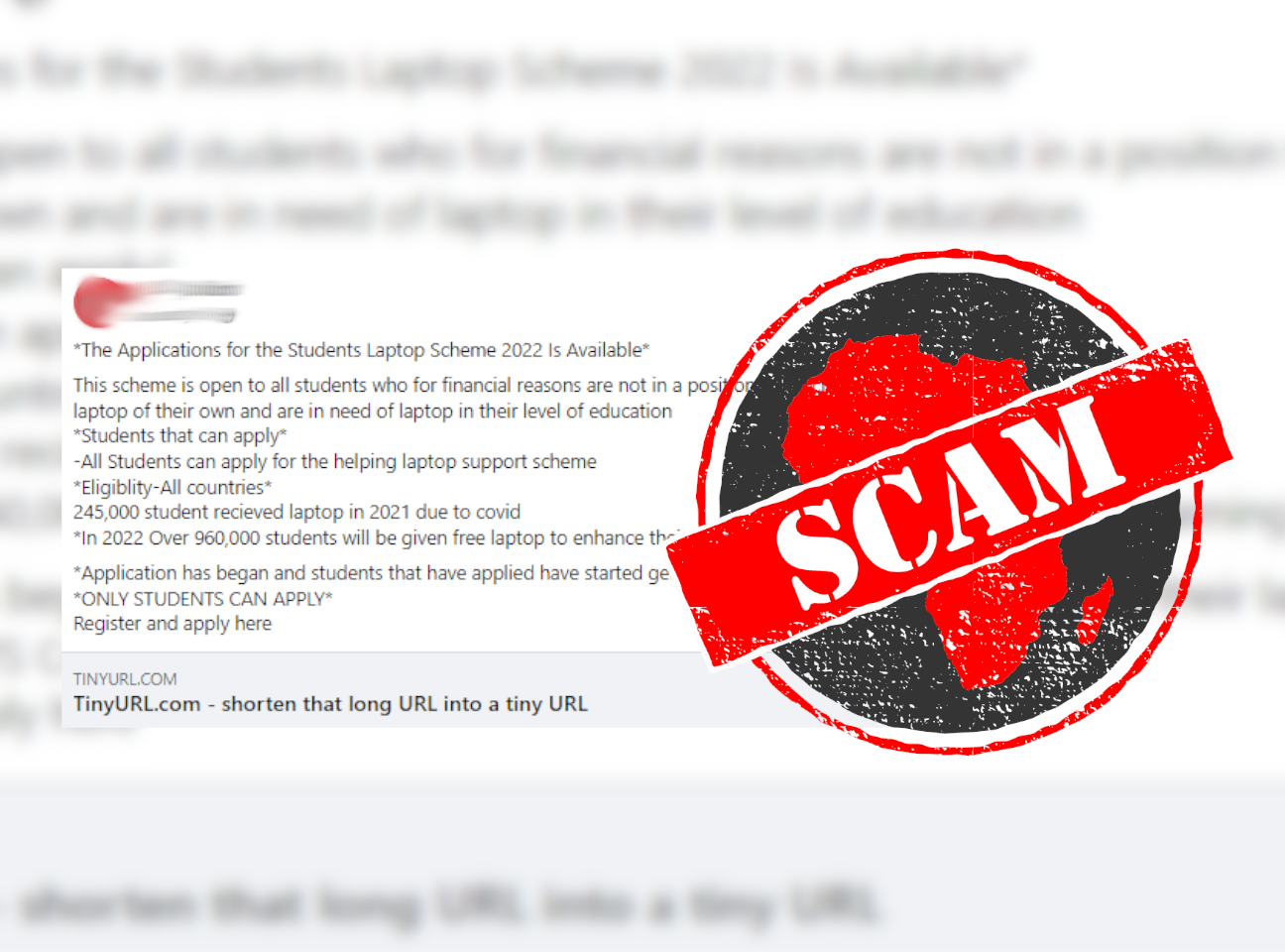“The Applications for the Students Laptop Scheme 2022 Is Available,” begins a message circulating on WhatsApp and Facebook in Nigeria.
“This scheme is open to all students who for financial reasons are not in a position to purchase a laptop of their own and are in need of laptop in their level of education. Students that can apply- all Students can apply for the helping laptop support scheme.”
The message claims 960,000 laptops will be given to students in 2022, and that 245,000 students “recieved laptop in 2021 due to covid”.
It includes a link to a website where students can supposedly apply for the laptops.
But is the offer for real?

URL pulled down for violation of terms
The first indication that the message is phoney is its poor spelling and grammar – often a sign of scams and disinformation.
The link in the message was posted using the free TinyURL link shortening and customisation service.
But TinyURL has picked up that the link is to a dodgy website, so instead of going to that site it directs to a warning.
“The TinyURL (FREE-STUDENT-LAPTOP2022) you visited was used by its creator in violation of our terms of use. TinyURL has a strict no abuse policy and we apologize for the intrusion this user has caused you,” the warning reads.
The URL shortening service considers spam (unsolicited bulk e-mail), fraud, money-making scams, malware and any other illegal use as violations.
The message was also rated as false by fact-checkers at NewsMobile, a Hindi-language website.
To help protect yourself against online fraudsters, see our guide to Facebook scams and how to spot them.
Republish our content for free
For publishers: what to do if your post is rated false
A fact-checker has rated your Facebook or Instagram post as “false”, “altered”, “partly false” or “missing context”. This could have serious consequences. What do you do?
Click on our guide for the steps you should follow.
Publishers guideAfrica Check teams up with Facebook
Africa Check is a partner in Meta's third-party fact-checking programme to help stop the spread of false information on social media.
The content we rate as “false” will be downgraded on Facebook and Instagram. This means fewer people will see it.
You can also help identify false information on Facebook. This guide explains how.


Add new comment